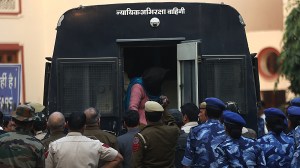Govt to send officers to prod states on Mining Ordinance
The move is crucial to take states like Orissa on board for ensuring smooth passage of the ordinance in Parliament.
The Central government may dispatch joint secretary-level officers to various states to help in effective implementation of the Mining Ordinance promulgated earlier this month. The move is being billed crucial to take states like Orissa on board for ensuring smooth passage of the ordinance in the coming Budget session of Parliament.
Several states are against the the Mines and Minerals (Development and Regulation) Act, 1957, amendment ordinance, promulgated on January 12, which nullifies their powers to auction lapsed mining leases. Through the ordinance, government has extended the validity of all lapsed leases to 2020 for commercially exploitable mines and till 2030 for captive mines. But mines minister Narendra Singh Tomar has contended that bidding out mineral resources is the best way to ensure transparency and fairness in their allocations.
Many states had planned to replenish their exchequer by bidding out non-coal mines, but they argue that the ordinance negates such a possibility as auctioning would now be the sole route to grant mineral concessions.
Orissa is also upset as it sees the ordinance coming in the way of meeting its existing raw material supply commitments with companies like Posco. The South Korean company was hoping for bagging rights for a captive mines in the state, but execution of the ordinance imply that it would now have to bid for a iron ore mine for its proposed 12 million tonnes integrated steel plant in Orissa’s Jagatsinghpur district.
To pacify the protesting states, the Union mines ministry would shortly write to chief secretaries and mines secretaries of various state governments asking them to nominate officials from their mines and geology departments to be trained by joint secretary level officers from the Centre for effective implementation of the MMDR Ordinance, a source in the mines ministry told The Indian Express.
Further, the mines secretaries of states have been asked to gather inputs from stakeholders and industry bodies within their domain to ascertain whether any clarification or amendments are needed in the ordinance and revert back likely within a fortnight.



- 01
- 02
- 03
- 04
- 05




























